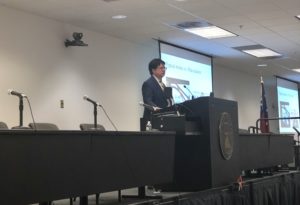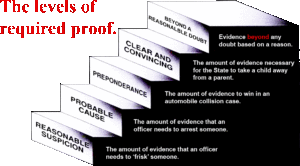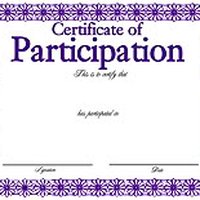There has been much ado about a controversy at Duke Divinity School. I will leave aside, for purposes of this blog the elements of race, gender and politics. Those articles and blog posts are being written. For a few paragraphs here, I want to discuss this controversy as an opportunity for a practice pointer when it comes to sentencing or any other presentation you might wish to bring to a judge that is discretionary in nature.
The controversy, in summary is this. A Duke Divinity School professor received a mass email about a two day racial sensitivity training. From what I can tell, the training was not mandatory. There was a link to click to enroll, and space was limited. The professor replied to the entire faculty that the seminar would be a waste of time to attend. I don’t know any of the actors beyond reading their emails. But it appears that the professor was more of a curmudgeon than a bigot. However, he chose to touch the third rail of campus politics — identity politics. And things quickly spiraled downhill. And he has now resigned. The controversy has occupied much faculty and student attention. along the way. And now the controversy has become fodder for conservative blogs and periodicals.
The professor’s email, the one that began the whole thing, is worth quoting in its entirety:
Dear Faculty Colleagues,
I’m responding to Thea’s exhortation that we should attend the Racial Equity Institute Phase 1 Training scheduled for 4-5 March. In her message she made her ideological commitments clear. I’ll do the same, in the interests of free exchange.
I exhort you not to attend this training. Don’t lay waste your time by doing so. It’ll be, I predict with confidence, intellectually flaccid: there’ll be bromides, clichés, and amen-corner rah-rahs in plenty. When (if) it gets beyond that, its illiberal roots and totalitarian tendencies will show. Events of this sort are definitively anti-intellectual. (Re)trainings of intellectuals by bureaucrats and apparatchiks have a long and ignoble history; I hope you’ll keep that history in mind as you think about this instance.
We here at Duke Divinity have a mission. Such things as this training are at best a distraction from it and at worst inimical to it. Our mission is to thnk, read, write, and teach about the triune Lord of Christian confession. This is a hard thing. Each of us should be tense with the effort of it, thrumming like a tautly triple-woven steel thread with the work of it, consumed by the fire of it, ever eager for more of it. We have neither time nor resources to waste. This training is a waste. Please, ignore it. Keep your eyes on the prize.
He may actually have a point. An argument could be made the he was right. And, giving him the benefit of the doubt, he sought to challenge his colleague to engage in a dialogue about race and gender in a more rigorous way. But surely he knew the temperature in the room. His message, in its particular form, was likely not going to move the ball down the field.
I am reminded of the task of preparing witnesses to testify at a sentencing hearing or at a motion to terminate probation. Or I am reminded of what it is like to collect letters on my client’s behalf for the parole board.
The people who will offer their testimony are deeply suspicious and (very often justifiably) distrustful of the judge, DA, law enforcement, and the judicial system as a whole. And they see their moment on stage as a time to stand up and vent that frustration or speak out about what they perceive to be right. In their mind, it is time to take a noble stand.
And in those instances, I have to remind the witness — “is this a hill that you are prepared to die to defend?” In other words, I may tell the client’s mom or wife, you could use your moments with the judge either to (1) inform him that he is biased in favor of the state and does not know how to run a courtroom fairly; or (2) persuade the judge to let my client out of prison. But the witness cannot do both.
Sometimes it may be better to role your eyes and delete an email instead of using a mass email situation to make a point. It may be better to raise the level of conversation over time than to use the medium of mass email to tell your colleagues that the training is a waste of time. Some hills are worth dying to defend (when you know that you surely will die) and others are not. Of course, if we do not get the result we wanted, the witness is often resentful that we did not take the stand. But, I always think, we chose to defend the right hill even if our efforts in that regard were futile.
 At yesterday’s GACDL Winter Seminar, Dean Strang spoke, not so much on Making a Murderer but on systemic failures of the criminal justice system that are on display in the documentary series. Those issues include poverty, the fact that the treatment of juveniles has not caught up with the research on brain development, and issue with the media.
At yesterday’s GACDL Winter Seminar, Dean Strang spoke, not so much on Making a Murderer but on systemic failures of the criminal justice system that are on display in the documentary series. Those issues include poverty, the fact that the treatment of juveniles has not caught up with the research on brain development, and issue with the media.






